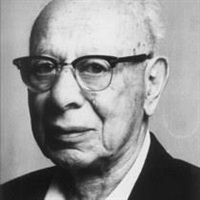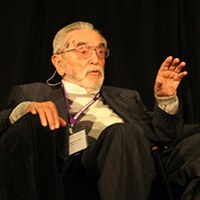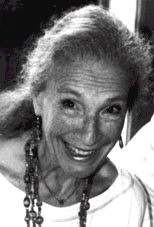EP85 Supervision Panel 03 - Bruno Bettelheim, PhD; Albert Ellis, PhD; Salvador Minuchin, MD; Miriam Polster, PhD
- Average Rating:
- Not yet rated
- Topic Areas:
- Supervision Panels | Psychotherapy | Family Therapy | Therapist Development | Group Therapy
- Categories:
- Evolution of Psychotherapy | Evolution of Psychotherapy 1985 | Pioneers in Couples and Family Therapy
- Faculty:
- Bruno Bettelheim | Albert Ellis, PhD | Salvador Minuchin, MD | Miriam Polster
- Course Levels:
- Master Degree or Higher in Health-Related Field
- Duration:
- 59:14
- Format:
- Audio and Video
- Original Program Date:
- Dec 13, 1985
- License:
- Never Expires.
Description
Description: This session explores how to support inpatient staff—especially nurses—in delivering meaningful group therapy. The panel emphasizes the value of teaching practical methods like Rational Emotive Therapy while also recognizing the need to tailor interventions to individuals before addressing larger family systems. Discussion includes how to avoid overly hierarchical roles in treatment, and how to sustain therapeutic momentum despite systemic barriers like resident turnover.
Moderated by Stuart M Gould, Jr, MD.
Educational Objectives:
- To compare and contrast clinical and philosophical perspectives of experts.
*Sessions may be edited for content and to preserve confidentiality*
Credits
Faculty

Bruno Bettelheim Related Seminars and Products
Bruno Bettelheim (August 28, 1903 – March 13, 1990) was an Austrian-born self-educated psychoanalyst who spent the bulk of his academic career from 1944 to 1973, as a professor of psychology at the University of Chicago and director of the Orthogenic School for Disturbed Children.[2][3]
He is perhaps best known for his essay The Uses of Enchantment (1976), which applied Freudian psychology to fairy tales and won the 1976 National Book Critics Circle Award for Criticism and the 1977 National Book Award in category Contemporary Thought.[4][5]Bettelheim wrote a number of articles and books on psychology for more than 40 years and had an international reputation on such topics as Sigmund Freud and emotionally disturbed children.

Albert Ellis, PhD Related Seminars and Products
Albert Ellis, PhD, was an American psychologist who in 1955 developed Rational Emotive Behavior Therapy (REBT). He held M.A. and Ph.D. degrees in clinical psychology from Columbia University and American Board of Professional Psychology (ABPP). He also founded and was the President of the New York City-based Albert Ellis Institute for decades.
He is generally considered to be one of the originators of the cognitive revolutionary paradigm shift in psychotherapy and one of the founders of cognitive-behavioral therapies.[2]
Based on a 1982 professional survey of US and Canadian psychologists, he was considered as the second most influential psychotherapist in history (Carl Rogers ranked first in the survey; Sigmund Freud was ranked third).[3][4] Psychology Today noted, "No individual—not even Freud himself—has had a greater impact on modern psychotherapy."[5]

Salvador Minuchin, MD Related Seminars and Products
Salvador Minuchin, MD, developed Structural Family Therapy, which addresses problems within a family by charting the relationships between family members, or between subsets of family. He was Director of the Philadelphia Child Guidance Clinic. Although it was minimally staffed when he began, under his tutelage the Clinic grew to become one of the most modeled and respected child guidance facilities in the world. In 1981, Minuchin began his own family therapy center in New York. After his retirement in 1996, the center was renamed the Minuchin Center. Dr. Minuchin is the author of many notable books, including many classics. His latest is Mastering Family Therapy: Journeys of Growth and Transformation. In 2007, a survey of 2,600 practitioners named Minuchin as one of the ten most influential therapists of the past quarter-century.

Miriam Polster Related Seminars and Products
Miriam Polster, Ph.D, is co-director of the Gestalt Training Center in San Diego, and Assistant Clinical Professor at the Department of Psychiatry, School of Medicine, University of California, San Diego. Along with her husband, Erving Polster, she is co-author of a book on Gestalt therapy. She received her Ph.D. in Clinical Psychology from Case Western Reserve University in 1967.


